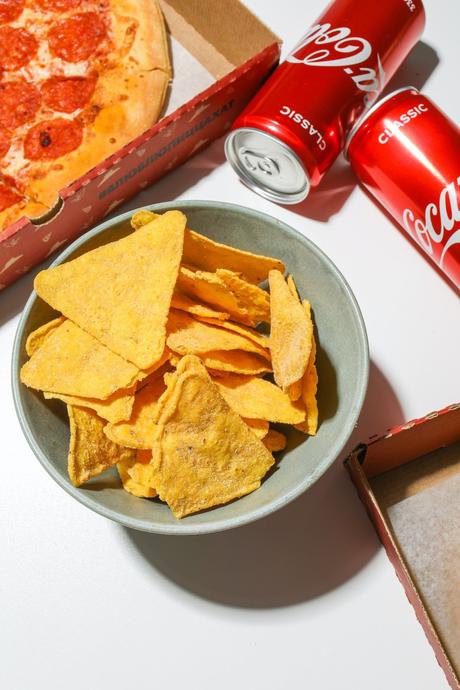
Between being farmed and ending up on your plate, almost all foods go through some level of processing. However, some foods are completely unnatural to the point that most people don’t even know what’s in them. It’s these ultra-processed foods that are a problem – things like white bread, candy, hot dogs, fries, chips and sweetened breakfast cereals. Many of us don’t realize just how much of these foods are in our diets and the issues that they cause.
What’s wrong with processed foods?
Highly processed foods typically have no nutritional benefits. Almost all the nutrition is taken out of them during processing and replaced with chemicals, salt, sugar and unhealthy additives. A bag of chips is a prime example – while mostly made from raw potatoes, practically all the vitamins and minerals from the potato are removed and replaced with salt and sugar. Eating too many of these foods deprives your body of the nutrients it needs, while pumping it full of unhealthy things that it doesn’t need.
On top of being unhealthy for you, processed foods are also typically unhealthy for the planet. A lot of energy is poured into manufacturing, transporting, and storing these foods and many chemicals are often added throughout the process such as pesticides, which cause damage to the entire ecosystem. To top it off, most of these foods are wrapped in plastic.
How Can I Consume Fewer Processed Foods?
Eating fewer processed foods is great for you and the environment. If you want to consume a diet that’s low in processed foods, think about every food you purchase and the likely processing it has gone through – aim to minimize this whenever you can. Below are just 6 ways to consume less processed foods!
Prepare more meals from scratch
When you make your own soup out of raw ingredients instead of eating a canned soup, you know exactly what has gone into that soup. This allows you to control just how healthy and eco-friendly the meal is. The same goes for other meals. Yes, preparing meals from scratch is much more time-consuming. However, it is ultimately more rewarding.
Buy food labelled ‘organic’
Food labeled as ‘organic’ typically has little to no chemicals added. When buying organic tomato sauce, you can usually guarantee that no pesticides were added to the tomatoes during farming and that no chemical preservative, colorants, or flavorings have been added during the sauce’s manufacture.
Swap out refined grains for whole grains
Many breads, pastas, cakes, cereals and cookies are made from refined grains – these are grains that have had pretty much all the nutrients stripped out, often replaced with salts and chemicals. Whole grain products retain all the original nutrients found in the grain and are therefore much healthier.
Buy from local producers
When you buy from a local farmer, you reduce the need for long-haul transport – which often means no need for chemical preservatives. Such foods also typically don’t have to be packaged as heavily.
Look into macrobiotics
Macrobiotics is a way of dieting that promotes health, mindfulness and environment-friendliness. It involves cutting out pretty much all processed foods. You can find out more about macrobiotics at this site from Denny Waxman, macrobiotic counsellor.
Grow your own produce
The best way to ensure food is unprocessed is to grow it yourself. Growing your own pepper plant or strawberry plant allows you to control how it is grown so that no chemicals are added. You’ll unlikely be able to grow all of your own foods, but it’s worth growing a few foods.
Thank you for reading!


